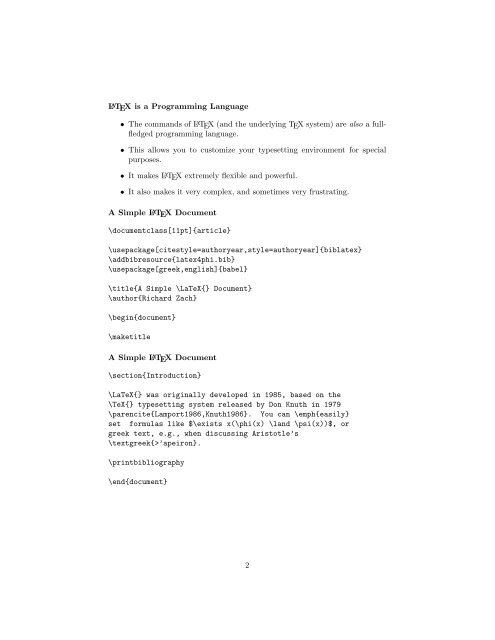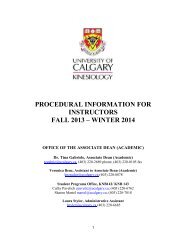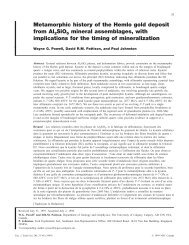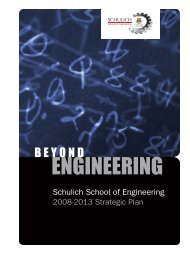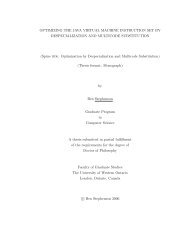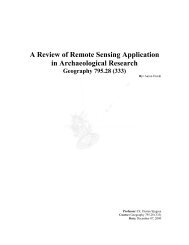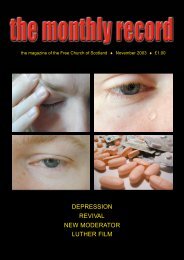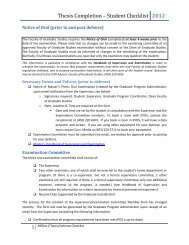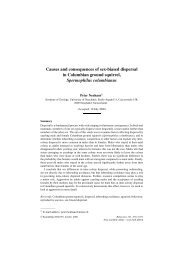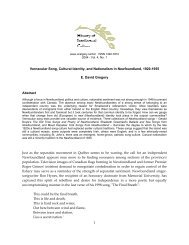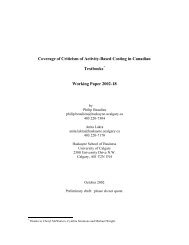LATEX for Philosophers - University of Calgary
LATEX for Philosophers - University of Calgary
LATEX for Philosophers - University of Calgary
Create successful ePaper yourself
Turn your PDF publications into a flip-book with our unique Google optimized e-Paper software.
L A TEX is a Programming Language<br />
• The commands <strong>of</strong> L A TEX (and the underlying TEX system) are also a fullfledged<br />
programming language.<br />
• This allows you to customize your typesetting environment <strong>for</strong> special<br />
purposes.<br />
• It makes L A TEX extremely flexible and powerful.<br />
• It also makes it very complex, and sometimes very frustrating.<br />
A Simple L A TEX Document<br />
\documentclass[11pt]{article}<br />
\usepackage[citestyle=authoryear,style=authoryear]{biblatex}<br />
\addbibresource{latex4phi.bib}<br />
\usepackage[greek,english]{babel}<br />
\title{A Simple \LaTeX{} Document}<br />
\author{Richard Zach}<br />
\begin{document}<br />
\maketitle<br />
A Simple L A TEX Document<br />
\section{Introduction}<br />
\LaTeX{} was originally developed in 1985, based on the<br />
\TeX{} typesetting system released by Don Knuth in 1979<br />
\parencite{Lamport1986,Knuth1986}. You can \emph{easily}<br />
set <strong>for</strong>mulas like $\exists x(\phi(x) \land \psi(x))$, or<br />
greek text, e.g., when discussing Aristotle’s<br />
\textgreek{>’apeiron}.<br />
\printbibliography<br />
\end{document}<br />
2


